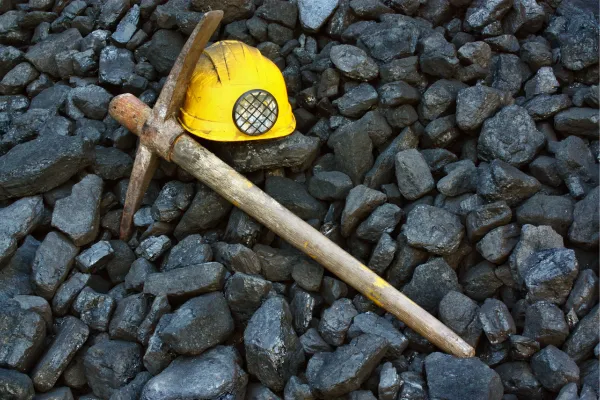Trusts
Protect your home and assets with a trust.
What advantages does a trust provide me?

Home protection
Secure your family home for future generations by placing it in a trust today, bypassing the probate process.

Less tax
Move assets out of your estate into a trust to lower taxes and save on inheritance tax for future generations.

Choice
Whether directly or through establishing trusts, safeguard the well-being of your loved ones and support charitable causes.
Trusts explained
What is a trust?
A trust is a method to safeguard your assets during your lifetime and beyond, ensuring financial stability for your loved ones. It also provides protection for vulnerable individuals with disabilities or financial challenges.
One significant advantage of a trust is its ability to minimize hefty inheritance tax bills, ensuring your estate's value is passed on tax-efficiently.
Trusts can be established during your lifetime, allowing you to control gifted assets as the trustee. They can also be arranged in your will to protect assets after your passing.
Trusts are valuable when considering potential future care fees, potential divorce of a family member, or safeguarding young or vulnerable family members.
We offer various trust types tailored to the nature and amount of assets, as well as their intended use.
How can I establish a trust?
If the information you've come across appeals to you, a trust could be advantageous. It's advisable to engage with us to gain insights into how a trust can complement your will. We provide complimentary, thorough consultations with our experts who will discuss your options.
In estate planning, a trust plays a crucial role. Depending on your situation, it's possible to have multiple trusts. The key is understanding the most effective ways to safeguard your well-being and that of your family, both in the present and for the future.
Can a trust bypass probate?
Yes, a trust can help you avoid probate.
When you transfer your home or assets into a trust, the trustees gain control over those assets. This can eliminate the need for probate, allowing the estate to be directly distributed to a beneficiary.
It's crucial to seek expert advice before placing assets into a trust. The trust should align with your overall estate plan, and your will should specify how assets not in the trust should be distributed to the appropriate individuals or trusts.
To ensure a smooth process, we recommend reviewing your estate with professional guidance while you and the involved parties are still in sound mental capacity.
FAQs
Why have a Trust?
A Trust can offer a layer of protection for the assets held within it. For example, if a beneficiary were to go through a divorce or face bankruptcy, assets in a Trust may be shielded from being claimed by a former spouse or a trustee in bankruptcy.
When should I set up a Trust?
A Trust can be created in your Will to commence upon your death, or it can be established during your lifetime and become effective immediately. You can also leave additional funds to the trust in your Will, and we can discuss the various options available to you.
What can I put into Trust?
While money and property are the most common assets placed in a Trust, you can include virtually anything. Trustees distribute items from the Trust to beneficiaries, which may include a child with a learning disability, based on the terms of the Trust and any guidance provided in a letter of wishes.
Are Trusts subject to Tax?
Trusts are subject to their own tax regulations. They can also serve as effective tools for tax planning. Transferring assets to a Trust during your lifetime may reduce inheritance tax upon your death by decreasing the value of your chargeable estate. Additionally, placing assets in a Trust for a beneficiary with lower income and gains can result in reduced income and capital gains tax rates.
How does a Trust work?
A Trust involves a legal arrangement where a Settlor (the person creating the Trust) transfers assets to Trustees (those responsible for managing the Trust) for the benefit of specified beneficiaries. The Trustees hold and manage the assets based on the terms and instructions outlined in the Trust deed.
What are the key roles in a Trust?
In a Trust, there are typically three key roles:
Settlor: The person who establishes the Trust by transferring assets into it.
Trustees: Individuals or entities responsible for managing and administering the Trust assets.
Beneficiaries: Those who benefit from the Trust assets as outlined in the Trust deed.
Can I be a Trustee of my own Trust?
Yes, it's common for Settlors to also be Trustees of their own Trusts. However, it's important to understand your responsibilities as a Trustee, including fiduciary duties to act in the best interests of the beneficiaries.
How can a Trust protect assets?
Trusts can protect assets by legally separating them from personal ownership. This separation can help safeguard assets from various risks, including creditors, legal claims, and certain tax liabilities.
Is professional advice needed to set up a Trust?
While it's possible to create a simple Trust independently, complex Trusts or those involving significant assets often require legal expertise to ensure they meet legal requirements and financial objectives.
How is a Trust different from a Will?
A Trust operates during your lifetime and after your death, managing and distributing assets according to your wishes. In contrast, a Will takes effect only after your death and goes through probate.
Clients Feedback
Explore Your Options: Online, Zoom, or Home Appointments - We Have a Service to Suit Every Budget
Navigating the complexities of Power of Attorney is made easy with B-Legal's comprehensive services. Whether you prefer the convenience of online, Zoom, or home appointments, we have a solution that fits your needs and budget.
Experience the simplicity of establishing a Power of Attorney online with B-Legal. Our platform connects you with accredited legal advisors who specialize in Power of Attorney arrangements, ensuring a secure and streamlined process.
Whether you're planning for future healthcare decisions, financial management, or safeguarding your assets, our digital solutions are designed for clarity and ease of use. B-Legal's commitment to accessible and trustworthy online legal services transforms how you prepare for tomorrow.
Protect your autonomy and ensure your wishes are honored with B-Legal's expertly guided online Power of Attorney services. Trusted by clients nationwide, B-Legal stands as a beacon of innovation in online estate planning.
Discover why our clients recommend B-Legal for seamless, professional online Power of Attorney services.
Our services

Wills with Trusts
Wills with Trusts combines estate planning methods, enabling specific asset distribution, potential tax benefits, and controlled support for beneficiaries after the testator's demise.

Lifetime Trusts
Lifetime Trusts, established during the settlor's lifetime in the UK, offer strategic estate management, asset protection, and tailored beneficiary provisions for future financial security.

Lasting Power of Attorney
Lasting Power of Attorney (LPA) in the UK enables individuals to appoint trusted persons to manage their health, welfare, or financial affairs in potential future incapacity scenarios.
Schedule Your Free Consultation with Our Trust Specialists
I agree to terms & conditions provided by the company. By providing my phone number, I agree to receive text messages from the business.
Prefer a Home Visit ? Book a home visit
Prefer a face-to-face discussion about your estate planning? B-Legal offers the convenience and comfort of home visits. Our trusted associates are ready to meet you in your own home, ensuring a personalized and private experience.
During the visit, they will provide detailed guidance on wills, powers of attorney, and trusts, tailored to your unique circumstances. Schedule your home visit today and embark on your estate planning journey with the utmost confidence and ease.
Insights and Advice

Retirement Planning in the Shadow of Coal:
Retirement Planning in the Shadow of Coal:
Introduction:
Once the backbone of the UK's industrial power, coal mining regions have undergone significant transformation since the peak of the industry in the 1970s and 80s. Today, the brave souls who powered the nation, now in their golden years, face the complex task of estate planning in a post-coal era. This blog aims to guide former miners and their families through safeguarding their legacies, with a special focus on protecting homes from inheritance tax through the strategic use of trusts.

Close-up image of coal chunks symbolizing the legacy of coal mining communities and the importance of tailored retirement and estate planning for their residents.
South Wales Valleys
The South Wales Valleys are synonymous with coal mining in the UK. At the industry's zenith, these valleys were lined with pits, and the communities here thrived on coal. Towns like Merthyr Tydfil and Rhondda became bustling centers of production, drawing workers from across the nation. The decline of coal mining hit hard, leading to significant social and economic shifts. Today, the valleys are navigating a post-industrial landscape, with efforts focused on revitalizing the local economy and preserving the rich cultural heritage of the mining era.
North East England
North East England, particularly Durham and Northumberland, was a powerhouse of coal production, playing a pivotal role in fueling the Industrial Revolution. The region's mines were known for their depth and the quality of coal extracted. The legacy of mining here is profound, with communities still deeply connected to their mining roots. Initiatives in these areas now aim to honor this history through heritage projects and support the transition towards new industries.
Yorkshire
Yorkshire's coalfields, especially in West and South Yorkshire, were among the most productive in the UK. Towns like Barnsley and Doncaster became synonymous with coal mining, with generations of families working in the mines. The closure of the pits left a lasting impact, but it also led to a strong sense of solidarity and community resilience. Efforts to diversify the economy have seen growth in sectors like technology and renewable energy, yet the pride in the region's mining heritage remains.
Scotland
The Central Belt and Fife in Scotland were once at the heart of the country's coal production. Mines like those at Lanarkshire and the Lothians were critical to both local economies and the national energy supply. Following the industry's decline, these areas have faced challenges in economic regeneration and environmental restoration. However, there's a strong push towards innovation and sustainability, with former mining lands being repurposed for new commercial and green spaces.
Nottinghamshire and Derbyshire
The East Midlands, particularly Nottinghamshire and Derbyshire, played a crucial role in the UK coal mining story. The discovery of extensive coal seams led to the development of large mining communities in these counties. Today, as these areas transition away from their coal-dependent past, there's a focus on leveraging their strategic location and skilled workforce to attract new business and investment, while also commemorating the mining heritage that shaped them.
Reflecting on the Transition
Each of these regions shares a common thread: a rich history intertwined with the coal mining industry and a journey towards renewal and adaptation in the post-coal era. The transition has not been without its challenges, but it has also opened avenues for regeneration and innovation. As these communities look forward, the legacy of mining continues to play a significant role in shaping their identities and aspirations, making the protection of legacies through estate planning all the more pertinent for the individuals and families who call these areas home.
Types of Trusts
Life Interest Trusts: These trusts allow you to grant someone (often a spouse or partner) the right to benefit from your assets during their lifetime. Upon their death, the assets can then pass to another specified beneficiary. This arrangement can be particularly useful in ensuring that a partner can continue to live in the family home, while ultimately preserving the value of the property for children or other beneficiaries.
Discretionary Trusts: Offering the utmost flexibility, discretionary trusts allow trustees (whom you appoint) to make decisions about how to use the trust income, and sometimes the capital, for the benefit of the beneficiaries. This type of trust is beneficial for protecting assets for future generations while accommodating changing circumstances, such as the evolving needs of beneficiaries or fluctuating financial situations.
Bare Trusts: Simplicity defines bare trusts, where assets are held in the name of a trustee but the beneficiary has the right to all the capital and income of the trust at any age. These are straightforward and often used to pass assets to young people, becoming fully accessible to them as adults.
Benefits of Using Trusts
Asset Protection and Control: Trusts can safeguard assets from potential future risks, such as business liabilities or divorce settlements, ensuring that wealth is preserved for intended beneficiaries. They offer a strategic way to control when and how beneficiaries receive their inheritance, which can be crucial for managing young or financially inexperienced heirs.
Mitigating Inheritance Tax: Properly structured trusts can help reduce the inheritance tax liability, potentially saving substantial amounts for your beneficiaries. By placing assets within a trust, they may not count towards your estate for inheritance tax purposes, depending on the type of trust and when it was established.
Flexibility and Peace of Mind: Trusts can be tailored to the specific needs and circumstances of your family, offering flexibility that other estate planning tools may not. They provide peace of mind, knowing that your assets are managed according to your wishes and that your loved ones are taken care of.
Other Estate Planning Considerations
Wills: A will is fundamental to any estate plan, ensuring your assets are distributed according to your wishes. Without a will, your estate may be divided according to standard legal formulas, which might not reflect your intentions or the needs of your beneficiaries.
Lasting Powers of Attorney (LPA): An LPA allows you to appoint someone you trust to make decisions on your behalf if you're no longer able to do so yourself. There are two types: one for financial decisions and another for health and welfare, both critical for comprehensive estate planning.
Professional Advice: Given the complexities surrounding trusts, wills, and LPAs, as well as the specific challenges and opportunities in former coal mining regions, seeking professional advice is essential. An expert can help tailor your estate plan to your unique situation, ensuring that your assets are protected, and your family’s future is secure.
In summary, estate planning in the context of the UK's former coal mining communities involves a thoughtful combination of trusts, wills, and powers of attorney. Each plays a vital role in safeguarding the financial security and legacy of those who have spent their lives in these storied regions, helping them navigate the transition from a coal-powered past to a hopeful future.
Expanding on how trusts can be utilized to mitigate inheritance tax (IHT) liabilities for former miners and their families involves a closer examination of the mechanics behind IHT, the strategic use of trusts, and illustrative examples that bring these concepts to life.
Inheritance Tax Thresholds and Rates
Inheritance Tax in the UK is charged on estates valued over a certain threshold, which currently stands at £325,000 (known as the "nil-rate band"). Anything above this amount is potentially taxed at 40%. However, there's an additional threshold for homeowners, the "residence nil-rate band," offering an extra allowance when passing on a main residence to direct descendants, which can further reduce the inheritance tax liability.
For former miners, whose estates may include the family home as a significant asset, understanding how these thresholds apply is crucial in planning to reduce or eliminate potential IHT.
Trust Strategies to Protect Your Home
Placing a Property into a Trust: One effective strategy is to place the family home into a trust. This can be done in several ways, depending on the desired outcome:
- A Life Interest Trust for the family home allows a spouse or partner to live in the property for life, after which it passes to other named beneficiaries (e.g., children). This approach can help in utilizing the residence nil-rate band while ensuring the property eventually goes to the next generation.
- A Discretionary Trust may be used where there's a desire to provide for a broader group of beneficiaries (such as children and grandchildren), with trustees having the discretion to decide how the property is used to benefit them.
These strategies can help ensure that the value of the home is effectively managed within the estate, potentially reducing the IHT exposure by making full use of available allowances and exemptions.
Case Studies: Hypothetical Examples
Case Study 1: John, a retired miner from the Yorkshire coalfields, owns a home valued at £400,000. Concerned about IHT, he places the property in a Life Interest Trust for his wife, Mary, with their children as eventual beneficiaries. This arrangement allows Mary to remain in the home, and on her passing, the property goes directly to their children, making use of both the nil-rate band and residence nil-rate band effectively.
Case Study 2: Sarah, whose parents worked in the South Wales Valleys mines, inherited a family home. She decides to place this property into a Discretionary Trust, aiming to benefit her children and grandchildren. The trust's flexibility allows for the property's value to be considered outside of her estate for IHT purposes, with the trustees managing the property according to the family's evolving needs.
Conclusion
The role of trusts in estate planning, particularly in the context of inheritance tax and protecting the family home, underscores the importance of tailored advice. For those in former mining communities, the legacy of a lifetime's work—including the family home—can be safeguarded for future generations with careful planning.
Professionals like B-Legal specialize in navigating the nuances of estate planning, ensuring that strategies like trusts are implemented effectively to meet the unique needs and circumstances of each family. By seeking expert guidance, former miners and their families can ensure that their legacies are preserved, honoring the hard work and resilience that characterized their contributions to the UK's coal mining heritage.
This comprehensive approach to inheritance tax and trusts aims to provide valuable insights and practical strategies for former miners and their families, guiding them through the complexities of estate planning with clarity and confidence.
We simplify the process of creating
a will or granting power of attorney.
B Legal operate as a company registered in England & Wales Privacy Policy Terms & Conditions
Our registered office is Bankwood Lane, Rossington, Doncaster, England, DN11 0PS

